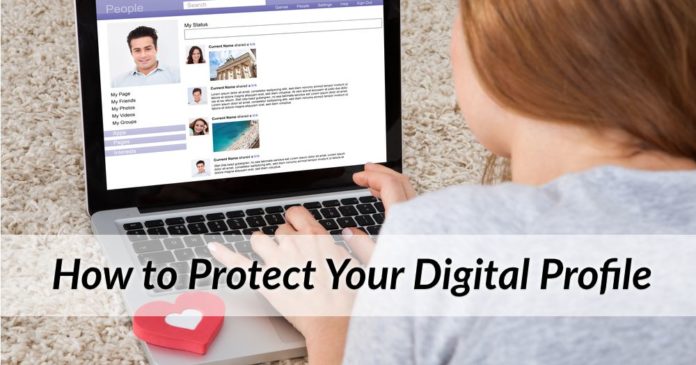
Everything you do online is included in your digital profile, with major tech companies collecting every click, share, send and post you’ve ever made. In that sense, it is important to “know what you’re doing online,” so that you can protect yourself from becoming a cybercrime victim.
It doesn’t have to be that hard, though. There are a few things you should do and be aware of in order to protect your digital profile:
1. Good cyber hygiene matters
You know that personal hygiene in life keeps your body healthy, and the same goes for your cyber hygiene — it helps keep your digital profile in shape.
Start with your social media accounts and browse around. Do all your posts need to be visible to the public at large? What about comments? My guess is that some of them are made for your best buddies only. And that’s how they should be visible — only to those who are concerned with that matter. As for the comments – you may want to delete those that may be inappropriate.
Roll up your sleeves and make sure only the general stuff is shared with the whole world. Personal stuff should be just that – personal.
A well-maintained digital profile is less vulnerable to cybersecurity risks, so make sure to schedule some time to clean it up. This will be a daunting task and you may have to return to it from one week to the other.
2. Clear the cache
Browser and app caching makes for faster user experience, but it also paves the way for security and privacy breaches. So, from time to time make sure to clear all the cache you can. This includes browser cache as well as any app cache on your phone and/or tablet.
If you’re interested in VPNs — why else would you visit our website in the first place — you care about your privacy. In that sense, you don’t want cookies getting more room than they require in your cache.
We do understand that cookies also make for more personalized experiences — but they also help companies identify you when you access their services. Or, in the case of Google and Facebook, they help these tech giants know your whereabouts all across the web.
By clearing your cache every now and then, you make it harder for corporations to track you down.
3. Keep your passwords for yourself
This is kinda obvious, but just because it’s common sense it doesn’t mean it’s a common practice.
Perhaps you want to share your Netflix password with a family member, but should you do that? It is not only illegal but could also (again) pave the way for future vulnerabilities. This is because you can’t control the circumstances from which your account is accessed and how it’s used. For instance, a good friend of yours could decide to share your password with his/her spouse and voila – the risk increases exponentially.
If you want to offer access to Netflix or any other service to someone else, you’re better off buying them a single month of the service as a gift. It’s a nicer thing to do and will also help keep your digital profile clean.
4. Watch what you click on
By mindlessly clicking around the web, you may be sending the wrong signals to the likes of Google and Facebook which keep track of every move you make. Their tracking codes — Google Analytics and Facebook Pixel — are on millions of websites and apps across the internet, helping the two tech giants create rather accurate user profiles — so they could serve us what they claim are better ad. The more you click around, the more they know about you.
So it’s not just the fishy websites you should avoid, but also jumping in and out from regular websites. This risk, of course, doesn’t exist with a good VPN, which keeps your identity and your real IP address under the radar. And that’s just the way we like it.
5. Verify third-party integrations
Say we/you trust Google and Facebook; after all, it is very hard to live without these two — especially Google. Thus many websites around the web use their login services. Think: “Facebook Connect” and “Login with Google” — which are spread all across the Interwebs.
We know Facebook and Google will keep our data protected so they could serve us ads, but what about third parties that are using the two giants’ services for login? Many of them are small companies which may or may not exist next year. You should always check what they plan to do with your data and what kind of data they require in the first place.
Both “Facebook Connect” and “Login with Google” will present you with the list of permissions the third party requires in order to let you use their service. Go through that list before clicking/tapping on that “Login” or “Sign-Up” button.
Also, you can revoke those permissions at a later date. Something all of us should consider…
…
With tech giants tracking us all around the web, it is getting increasingly hard to keep your identity under the radar. You may try to avoid using the services offered by these companies, but that may be harder than it sounds. Instead, you should make sure your digital profiles are as clean as possible, and yes – you should use a VPN. Start by going through our list of Best of the Best VPNs and take it from there. 😉
